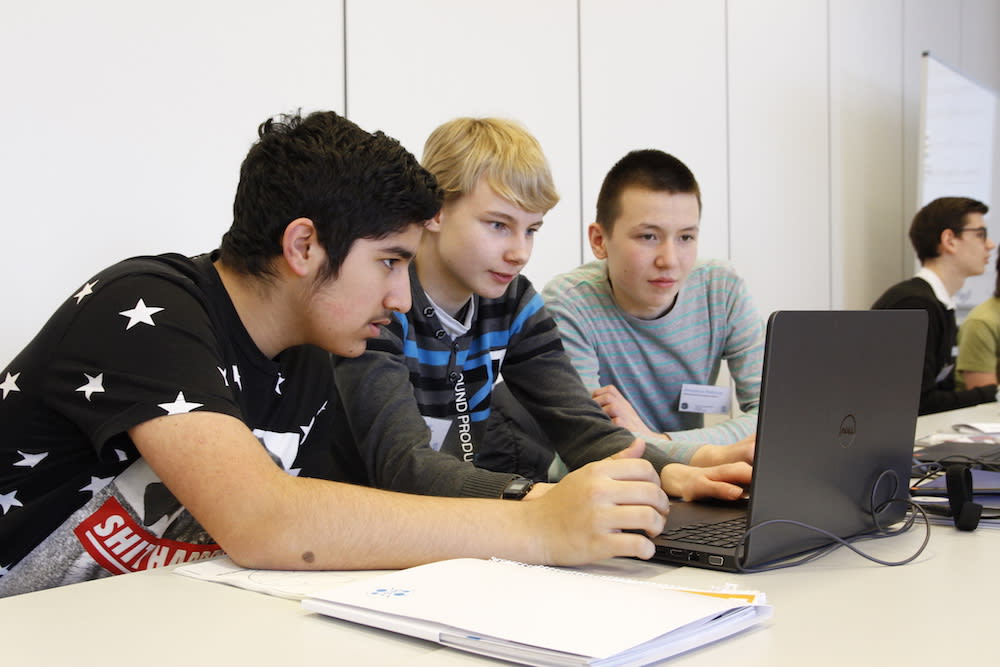
The third edition of the IceCube Masterclass hosted over 200 students at 10 institutions in Belgium, Germany, and the US. Madison (WI) hosted the first edition in Spanish, attended by 28 Hispanic high school students. Masterclasses were held on March 2 and March 9.

The IceCube Masterclasses were launched in May 2014 with the goal of promoting research careers in astrophysics among students with some interest in STEM related fields. In the first year, students performed a guided analysis that replicated the discovery of astrophysical neutrinos by IceCube. In 2015, a second analysis was developed to replicate the measurement of the cosmic-ray flux using IceCube data.
The 2016 edition featured a new trilingual website (English, Spanish, and German) and a first masterclass in Spanish, both adding to the efforts of the IceCube Collaboration to reach out to ever broader audiences, including underrepresented communities in science.

A first glimpse at the evaluation has once more shown this program to be great at conveying what a scientist does. The vast majority of students thought that the program was well organized. Around 50% of them said that they are now more interested in science—this percentage went up to 75% for the Hispanic students.
A few quotes nicely summarize the students’ feelings about the masterclass experience:
A student in UW–River Falls (WI) said, “There is a lot more to physics than I thought, and going to be a lot more to physics over the next few years.”

A student in Aachen (Germany) said, “I liked that people with big “titles” were so friendly to the guests.”
A student in Brussels (Belgium) said, “I enjoyed everything: the discussions with the other students and the researchers, the activities, the talks, the experiment in the afternoon, the food, meeting new people … It was awesome, thanks!”
A student in Madison (WI) answered the question, “What are you going to tell your friends about the IceCube Masterclass?” with “that I’m now smarter than them because I know more astronomy.”

A student in Mons (Belgium) said that one idea he will take with him was that “neutrinos are something really fascinating.”
A student in Tuscaloosa (AL) answered the question, “Do you have any other comments or suggestions that you´d like to share with us?” with “Keep up the good work. Good luck!!!”
Thanks! We will!